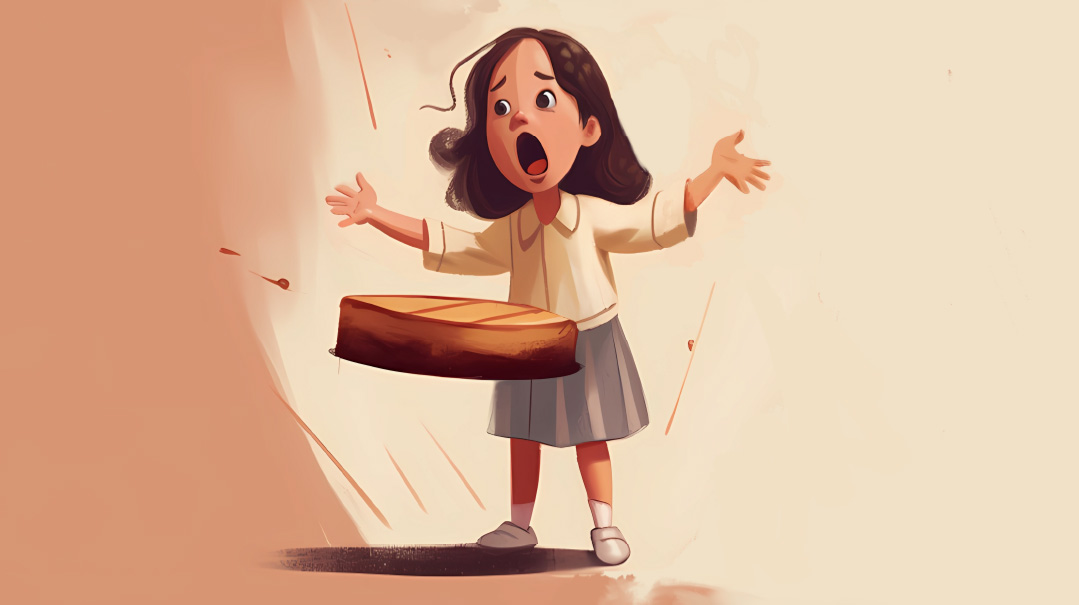The Storytellers: Part 1

Her teacher’s criticism rang so true, it was an arrow piercing the center of the target

Panama City
“All endings are really beginnings.” Abuelita’s voice was scratchy, thin like parchment paper, her breath shallow and slow. She reached a shriveled hand out to Margalit, which the girl took in her own. Abuelita said no more, but for a moment Margalit imagined that her great-great-grandmother’s eyes were clear and bright once again, instead of cloudy with age and cataracts. Once, they had been as blue as the sea. All too soon, though, she closed them, and her hand slipped from Margalit’s. Abuelita’s breathing slowed and then stopped.
Was this it? Was she… gone?
Margalit looked down at her palm. There was a key resting there, so small and slight she hadn’t even felt Abuelita place it there.
It was a key Margalit had never seen before. Staring at it now, she wondered if Abuelita had really just left it there a second ago. It seemed impossible. But also very possible, knowing Abuelita. Margalit had no idea what it was for.
But she could barely see it anyway, through the tears crowding her eyes. She stuffed the key into her pocket, and called for her father, her mother, her aunts, anyone.
Deal, New Jersey
Sometimes Smadar felt like a Russian matryoshka doll, all layers upon layers, wondering who the real Smadar was. How many nesting dolls had to be removed from inside each other to get down to the whole one within, to the one who couldn’t be opened anymore? What and where was her true essence?
There was the sporty girl, the perfect student, the people pleaser, the chesed doer, the Beis Yaakov poster child. Smadar knew the truth: none of these roles went more than skin deep. All were incredibly, painfully superficial . Who was the real Smadar ? And would she please reveal herself?
At other times Smadar was sure she was no doll, but rather an onion… because so many layers made her just want to cry. The truth of the matter was, Smadar had no idea who she really was.
Of course, that awful night didn’t help. Had it really just been yesterday?!
She’d heard the phone ring and her father had answered, his “Hello?” a casual thing, unaware of what awaited him on the other end of the line. It had been her teacher, Mrs. Lewin’s voice hesitant at first, coming through the speakerphone. “Is this Mr. Sutton?” And when her father had answered in the affirmative, Smadar had stood stock still outside the door to his office, hovering silently in the hall, listening. It was wrong, she knew. But. But.
At first, her teacher’s words were all praises. That’s how it always went, the famous sandwich: praise-criticism-praise, a little piece of grit wedged between two cushions. Or, Smadar thought, smiling wryly to herself, the little grain of sand in the oyster that ultimately becomes a pearl.
But, of course, she knew it would be there, that irritating little granule, the real reason the teacher called. But the thing was, for all Smadar’s expecting it, she hadn’t truly anticipated it: Her teacher’s criticism rang so true, it was an arrow piercing the center of the target. Her words nearly took Smadar’s breath away.
“You see,” Mrs. Lewin murmured, “Smadar is wonderful in so many areas, but I worry about her.” And there she paused, took a breath. “She’s doing everything, but also nothing . She’s got a finger in so many things, but that’s it: just a finger. She’s not truly involved, not in a way that puts her heart into things.” Another pause. Dramatic. “Who is she really? Where’s her depth?”
And then Mrs. Lewin hesitated, as if wondering whether she’d spoken too much, said more than she’d intended. Smadar’s father inhaled sharply, his voice thick with some emotion Smadar couldn’t quite place. “And you’re calling because ….” He paused, waiting for Mrs. Lewin to continue.
“Well.” She seemed to be thinking a moment. “I just think she could be so much more than she is. She’s an outstanding girl. She just needs help figuring out who she is and who she wants to be. Smadar is putting so much energy into activities and extracurriculars and fulfilling expectations that I worry she’s not putting enough into herself. If she’s always trying to check all the boxes of whatever she thinks is the ‘perfect student’ or whatever, she’ll never get to find her real essence, which is so important, especially during these early teen years. And I know she has it in her, that’s why I’m calling.”
Mrs. Lewin paused. Smadar held her breath, afraid to be caught eavesdropping in the hall. Afraid her father had understood the teacher. Afraid that maybe he hadn’t. But one thing was clear: She had understood her. Perfectly.
If she could take this piece of grit and turn it into a pearl, what a pearl it would be. But how?
As her father said goodbye and thanked Mrs. Lewin, it became clear that he, too, had understood. There was something in the way he ended the call, contemplative. Smadar gulped and made a quick escape down the other end of the hall, hoping her father didn’t know that she’d heard, hoping he wouldn’t come to confront her about this tonight. She wasn’t ready, had nothing to say yet.
But there was never a discussion about it. Because just a short time later they got another call. A life-changing call. There was a funeral being planned. They needed to travel, there was so much to do. All for a future to be lived without a heartbeat.
Abuelita was dead.
Panama City
The next day, the day after Abuelita died, as all days henceforth would forever be counted, Margalit reflected that having Abuelita’s key in her pocket was like a holding a piece of ice: impossible to ignore. What had Abuelita meant by giving it to her? What did it have to do with the endings and beginnings she’d been talking about? She took it and held it up for a moment, searching for its secrets.
Margalit lay on the grass in front of the house and watched the sky. But nothing came to her, no memory of a key or a lock. She closed her eyes and felt the shadow of a cloud pass above her, blocking out the sun. Would the sun ever shine again as fully, as brightly, in a world without Abuelita in it? A tear leaked out of the corner of her eye.
The cloud shadow lingered. A thought hovered on the edge of her mind, just out of Margalit’s reach. And then it was there, a memory from not so long ago. But not of a key.
Her father and mother had been sitting in the garden, talking under the velvet, star-studded night, sipping mint lemonade. Margalit’s window was open. She hadn’t meant to listen, but the words had drifted in, and her parents hadn’t realized she could hear them.
“She’s just so different,” her mother said. “It’s concerning. She should be more like other girls her age.”
Her father didn’t answer right away. Margalit imagined — because she couldn’t hear from her place at the darkened window, standing behind the curtain — that her father must have sighed. He was a sigher.
“Yes,” he agreed. “She’s always been different. But tell me, how should she be otherwise? She lives in the largest house in the kehillah, along with many members of her extended family. She’s spent her life living with a great-great-grandmother. And her siblings were all out of the house by the time she was born. How should she be anything but different? What does she have in common with other girls her age?”
Now it was her mother’s turn to be silent. “You’re right,” she finally said. “Of course. It’s just my wish, my dream…” her voice trailed off, then gained strength, “my prayer for her to have a true friend her own age.”
Her father answered “Amen,” never wasting an opportunity to turn ordinary words into expressions of blessing and hope. “It is my prayer, too.” Then, after a few more moments of silence, he said, “Even if she could just spend some time with her cousin, it would be so good for her….”
Margalit blinked in the sunlight as the cloud shadow finally passed and the memory evaporated.
“Be careful what you wish for,” she whispered.
to be continued...
(Originally featured in Mishpacha Jr., Issue 939)
Oops! We could not locate your form.







